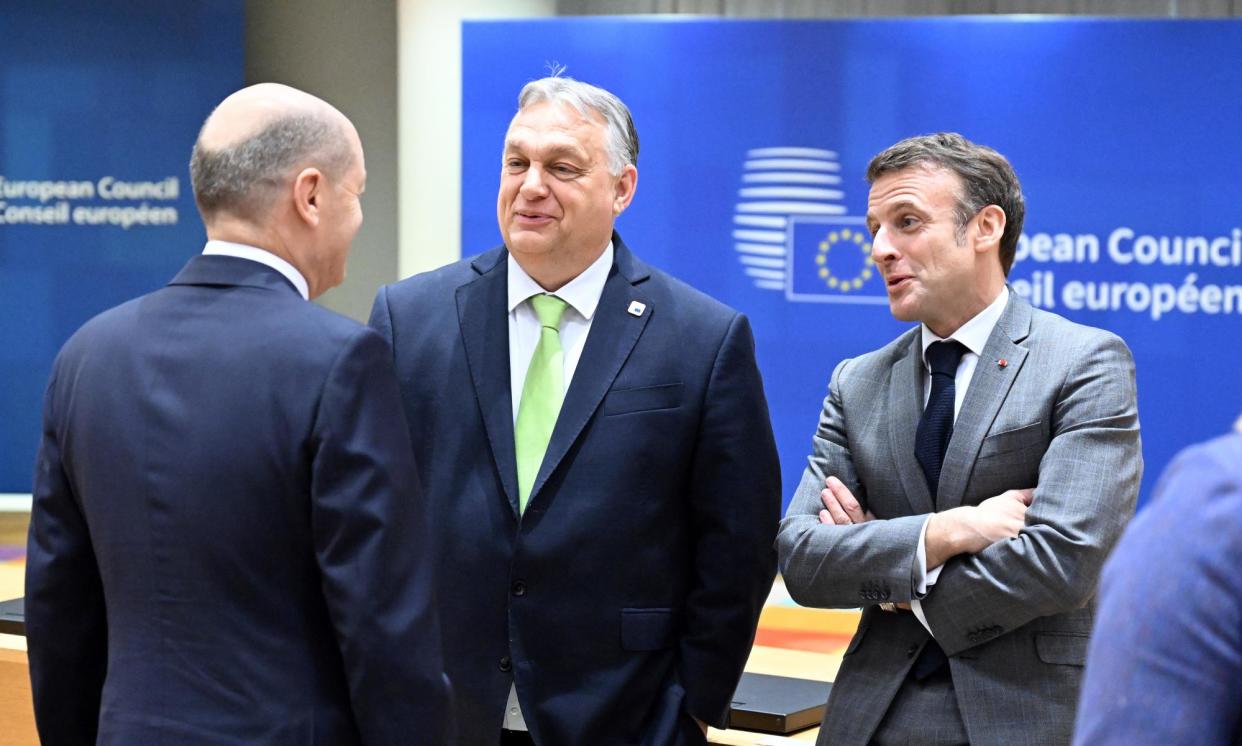EU agrees in principle to give profits from frozen Russian assets to Ukraine

EU leaders have agreed in principle to commandeer a large majority of the profits generated from frozen Russian assets and give them to Ukraine.
The proposal could generate €3bn (£2.6bn) this year and the first billion could be released to Ukraine by July, the European Commission president, Ursula von der Leyen, said late on Thursday at the end of the first day of an EU leaders’ summit in Brussels.
“I told the leaders that if we are swift now in concluding the proposal, we could disburse the first billion on the first of July. So it depends on us,” she said, adding there was strong support to use the proceeds on “military purposes for Ukraine.”
Von der Leyen also revealed that the EU is looking at increasing tariffs on Russian grain, including stolen Ukrainian grain, entering into the EU market.
The agreement comes after almost a year of negotiations over the legal basis for the effective sequestration of €190bn held in the Belgian central securities depository Euroclear.
The way was cleared for an agreement after the wording was tweaked to address opposition by Hungary to the money being used to arm Ukraine.
Related: EU leaders urged to put economies ‘on war footing’ at Ukraine negotiations
How the funds will be carved up has yet to be decided but the proposal was to use 90% on military programmes and 10% on reconstruction, with the potential for some money to be diverted to EU funding of peacekeeping missions around the world to meet Hungary’s concerns.
The move is still laden with legal risk. There is a possibility the money would have to be returned after the war if Russia launched legal action.
On Wednesday, the Kremlin said such a move would be a flagrant breach of international law, but EU diplomats said they were all agreed the profits or interest generated by the frozen assets could be used in Ukraine.
Volodymyr Zelenskiy had urged EU leaders to increase support with more air cover to protect eastern cities from Russian bombardment, including the release of frozen assets.
“The aggressor should pay the highest price for the war – this is in line with both the letter and spirit of the law,” he told EU leaders in a video address.
He went further, asking EU leaders to also consider the capital held in the Belgian bank, something that is not being considered.
At their summit, EU leaders gave a further boost to bids by Ukraine and Moldova to become members of the bloc, agreeing to ask the commission to “swiftly adopt the negotiation framework [for accession] without delay”.
They agreed it was right to move forward on membership talks with Bosnia and Herzegovina once it has met all conditions for reforms required to meet candidacy status.
Zelenskiy thanked the EU for the €5bn payment from the Ukraine assistance fund agreed in December and for the recent pledge of ammunition shells under an initiative launched by the Czech Republic to procure weapons outside the EU.
“If there is enough support for Ukraine, it will show Putin’s buddies that there will be enough support even if this insane person orders the expansion of aggression to other European countries,” he said.


